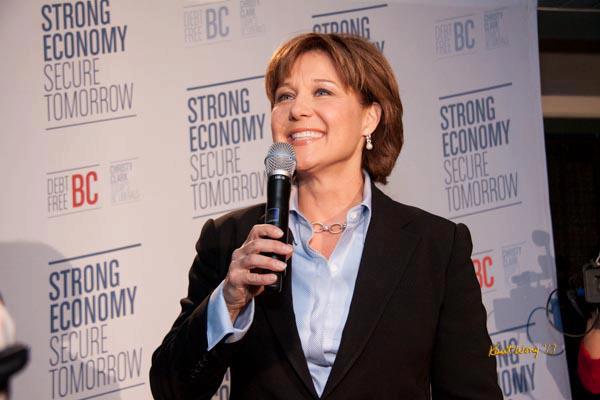Art and Culture
B.C. premier pledges to end violence against aboriginal women and girls
NORTH VANCOUVER, B.C. — British Columbia’s premier signed an agreement with First Nations and Metis leaders Friday pledging to end violence against aboriginal women and girls, acknowledging that a history of colonialism and racism has left scars that continue to put the province’s most vulnerable people in danger.
But the memorandum of understanding did not come with any specific plans for new policies or programs and follows criticism that the government has been slow to heed previous calls for change.
Premier Christy Clark gathered at a First Nations community centre in North Vancouver to sign an agreement with the First Nations Summit, the Union of B.C. Indian Chiefs, the B.C. Assembly of First Nations and Metis Nation B.C.
The one-page document says the signatories recognize that aboriginal women and girls suffer disproportionately high levels of violence, which it says is rooted in years of “colonial policies and practices that sought to exclude aboriginal people economically and socially, and attempted to destroy their culture.”
The government and the aboriginal groups agreed to set priorities and then develop policies to address them. The document says they’ll meet at least once a year to track their progress.
“Victims live with shame, they live with guilt, they live with the fear that if they speak out it will only get worse,” said Clark.
“In publicly acknowledging it, we give permission for those who witness it to speak out, because no one deserves to be a victim of violence.”
Clark used the event to announce an additional $400,000 in government funding for the Giving Voice project, which helps communities speak out against violence against women and girls.
Aboriginal leaders praised the provincial government, while promising to do everything they can to ensure Friday’s event is more than just a photo-op.
“We need to make sure that we take concrete steps so this is not an event where photographs can be taken but that this is the start of something meaningful,” said Chief Jody Wilson-Raybould, regional chief for the B.C. Assembly of First Nations.
“We must do better for our women and girls.”
Many speakers, including Clark, said poverty and inequality were the root causes of violence, and those issues must be addressed to keep women and girls safe.
B.C. has a dark history of such violence, with dozens of aboriginal women and girls, many of them living in poverty on the margins of society, disappearing or being murdered during the past several decades.
That phenomenon was put into stark relief by the Robert Pickton serial killer case, which prompted a public inquiry that examined not only that case but also the broader issues related to missing and murdered women. A report, released in December 2012 by commissioner Wally Oppal, included more than 60 recommendations.
The province has faced criticism that it has been slow to adopt those recommendations.
The government released its own status report last fall that listed only two recommendations as complete _ both of which were announced the day the Pickton inquiry report was released.
Oppal’s report also contained several recommendations to address the so-called Highway of Tears, a stretch of highway in the province’s north where at least 18 women and girls have been murdered or have disappeared. Despite publicly claiming it was busy consulting on the issue, as of early May, the government had held only one meeting with local governments in the previous year and a half.
On Friday, Clark insisted the government had made “significant” progress on the Oppal report, though she declined to provide any examples, instead leaving that for an updated status report expected in the coming months.
A government spokesman later noted several things the province has done in recent months to address the Oppal report, such as announcing compensation for the children of missing and murdered women, revising missing-person legislation for cases involving vulnerable people, tweaking a number of other laws related to the justice system, and announcing funding and grants for community groups.
The premier also suggested the issues raised in the Oppal report are not the same as the focus of Friday’s agreement.
“It’s related to some of the other discussions that we’ve had about the Oppal report and missing women, but it’s also different,” Clark said after the signing event.
“We are absolutely committed to making sure we address these issues of domestic violence across our society, but recognizing that aboriginal women feel domestic violence more often than other women. It’s wrong and it’s going to need a really careful and targeted approach.”






















